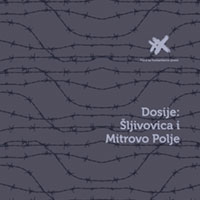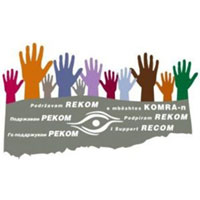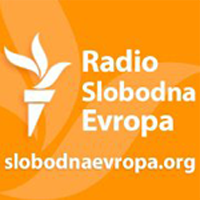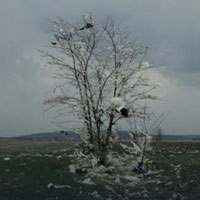Dossier „Šljivovica and Mitrovo Polje“

 After capturing Žepa in late July 1995 approximately 800 Bosniaks from Žepa crossed the River Drina and entered the territory of the Republic of Serbia, frightened for their lives after rumours had spread of the crimes committed by the Army of Republika Srpska in Srebrenica. Most of them were members of the Army of BiH, but there were also civilians, including dozens of underage boys. Almost immediately after crossing, the men were taken captive by border guards of the Yugoslav Army and members of Special Police Units.
After capturing Žepa in late July 1995 approximately 800 Bosniaks from Žepa crossed the River Drina and entered the territory of the Republic of Serbia, frightened for their lives after rumours had spread of the crimes committed by the Army of Republika Srpska in Srebrenica. Most of them were members of the Army of BiH, but there were also civilians, including dozens of underage boys. Almost immediately after crossing, the men were taken captive by border guards of the Yugoslav Army and members of Special Police Units.
After registration and interrogation, accompanied by ill-treatment, all detainees were taken to the Šljivovica camp in Braneško Polje, near Čajetina. As there was no room in Šljivovica for such a large number of people, a group of detainees was transferred to another camp, located in Mitrovo Polje (Aleksandrovac municipality). In both camps, detainees were subjected to torture, sexual violence, inhumane treatment, humiliation and starvation, and were robbed of their possessions. Three detainees died as a result of the torture.
The Mitrovo Polje camp was closed in February 1996. The camp in Šljivovica was closed in April 1996, when the last remaining detainees were freed.
To date, no one has been called to account for the torture, abuse and deaths of Žepa male detainees in the camps in Serbia. Although the names are known of the inspectors and guards who were in the camps, no proceedings have ever been brought before any domestic court to establish the criminal responsibility of these individuals for acting contrary to domestic and international law. Neither the International Criminal Tribunal for the former Yugoslavia nor the International Court of Justice has addressed the torture of the Bosniaks in Serbian camps, although both courts were presented with evidence concerning these crimes.
The dossier „Šljivovica and Mitrovo Polje“ is available here.








 Following the presentations in Zagreb and Sarajevo, the results from the list of human losses during the armed conflicts in Croatia, Kosovo, and partially in Bosnia and Herzegovina (BiH), as well as the list of detention sites in the armed conflict in BiH, were presented in Belgrade on December 15th, 2016. According to the research in progress, 13,535 persons were either killed or disappeared during the war in Kosovo, and 2,057 citizens of Serbia and Montenegro were killed or disappeared during the wars in Croatia and BiH, whereas approximately 160,000 citizens of BiH were detained in camps set up throughout the territory of that country.
Following the presentations in Zagreb and Sarajevo, the results from the list of human losses during the armed conflicts in Croatia, Kosovo, and partially in Bosnia and Herzegovina (BiH), as well as the list of detention sites in the armed conflict in BiH, were presented in Belgrade on December 15th, 2016. According to the research in progress, 13,535 persons were either killed or disappeared during the war in Kosovo, and 2,057 citizens of Serbia and Montenegro were killed or disappeared during the wars in Croatia and BiH, whereas approximately 160,000 citizens of BiH were detained in camps set up throughout the territory of that country. 





 The new issue of the through ACCESSION towards JUSTICE bulletin brings an interview with the Chief Prosecutor of the International Criminal Tribunal for the Former Yugoslavia (ICTY), Mr. Serge Brammertz, who spoke about the importance of establishing criminal justice for the war crimes committed and the achievements of the ICTY and national judiciaries. The Bulletin also relays an opinion about whether the European Union is faced with certain constraints, which make it difficult for the EU to approach the issues of establishing justice for the crimes committed in a more decisive and thorough manner. Mr. Iavor Rangelov and Ms. Marika Theros from the London School of Economics and Ms. Nataša Kandić, the founder of the Humanitarian Law Center and the RECOM Initiative Coordinator, give their answers to these questions.
The new issue of the through ACCESSION towards JUSTICE bulletin brings an interview with the Chief Prosecutor of the International Criminal Tribunal for the Former Yugoslavia (ICTY), Mr. Serge Brammertz, who spoke about the importance of establishing criminal justice for the war crimes committed and the achievements of the ICTY and national judiciaries. The Bulletin also relays an opinion about whether the European Union is faced with certain constraints, which make it difficult for the EU to approach the issues of establishing justice for the crimes committed in a more decisive and thorough manner. Mr. Iavor Rangelov and Ms. Marika Theros from the London School of Economics and Ms. Nataša Kandić, the founder of the Humanitarian Law Center and the RECOM Initiative Coordinator, give their answers to these questions.